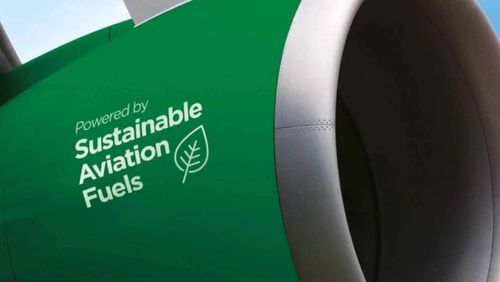Bank of America, Delta Air Lines, Ecolab and Xcel Energy have established the Minnesota SAF Hub, the first large-scale SAF Hub in the US committed to scaling sustainable aviation fuel production, according to a news release.
Anchor members are joined by other institutions, including the State of Minnesota, to implement a shared strategy for decarbonizing the airline industry. It’s organized through the GREATER MSP Partnership.
The aim is to produce low-carbon SAF by developing an integrated value chain from production to use at Minneapolis-Saint Paul International Airport.
“After eight months of behind-the-scenes collaboration, the coalition will share its ambitious objectives today at the North American SAF Conference and Expo in Minneapolis,” the release states. “Progress to date includes establishing a shared, multi-phase strategy, securing nation-leading financial incentives from the State of Minnesota, and building a growing coalition of Minnesota-based organizations including the anchor companies, State of Minnesota, the Metropolitan Airports Commission, the University of Minnesota, and knowledge partner McKinsey & Company.”
As early as 2025, the coalition aims to bring commercial-scale volumes of SAF to the airport. Minnesota’s SAF tax credit makes the state attractive for production. It is working with existing and prospective SAF producers to increase production in Minnesota.
“The coalition will welcome additional SAF producers, investors, corporate partners, and broader value chain players,” the release states.






